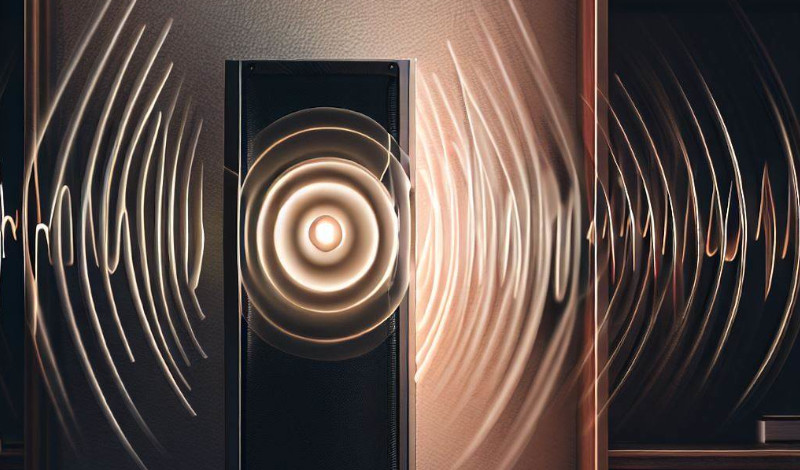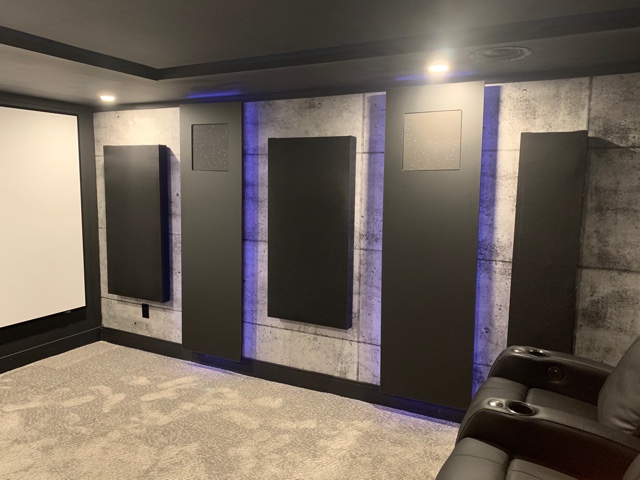Do Small Home Theaters Need More or Fewer Acoustic Panels?
There are a lot of advantages to setting up your home theater in a small room. Everything can be smaller and cost less. You can have fewer speakers and still have convincing surround or Atmos effects. Your subwoofers can be smaller and still pressurize the space. But what about room treatments? Do small home theater rooms need more or fewer acoustic panels? Let’s discuss!
Let’s Talk About Energy
Your speakers create sound wave energy. It’s what you hear and feel as you are watching the latest action movie. The volume of those sounds that are created reduces based on two main things: the distance the sound travels and the medium through which it travels. You know this instinctively. If you can’t hear what your spouse or friend is saying, you turn toward them and move closer. If you still can’t hear them, you remove any obstacles in the way (like a door). You can’t increase the volume of the sound, but you can remove obstacles or reduce the amount of energy it loses before it hits your ears.

Your Small Room Isn’t Helping
It is easy to assume that because your home theater is small, you might need fewer rather than more acoustic panels. Heck, there isn’t even that much room for them! With a room so small, the acoustic panels are practically everywhere. The sound waves must be hitting them!
First, remember what we said. Sound energy is reduced by the distance traveled or by the medium through which it travels. Your small room is…well…small. The sound waves don’t have to travel very far before they hit a wall and bounce back toward you. This means that the reflected waves haven’t lost as much energy and will still be relatively loud compared to the direct sound. This can create all sorts of problems in your space.
Acoustic panels change the medium through which the sound travels. As the sound passes through the panel, it loses much more of its energy than it does as it passes through the air. This helps reduce the volume of the reflected sound.
Reflected Sound and Large Rooms
In large rooms, the sound has to, by definition, travel a long way before it hits a surface and bounces back toward the listener. While large home theaters still need acoustic panels to help reduce the echoes and reverberations of the sound, the volume of the sound was already reduced simply by the distance the sound wave had to travel to get to the panel.
Do Small Rooms Need More Panels?
Does this mean that small home theaters need more or fewer acoustic panels? Well, it may seem like there are more acoustic panels in your small room. But what we are really saying is that you need THICKER acoustic panels. As you increase the thickness of an acoustic panel, it can absorb more sound energy and can absorb lower sounds. As smaller home theaters have more and stronger reflected sound, they need more of that sound energy reduced by the acoustic panel.

While the total number of acoustic panels for a large room might be higher than in a smaller one, the smaller room may feel like it has more panels because they are thicker and seem to take up more space. They will often need to be placed closer in a small room to catch the intense reflections. While the absolute number of panels in a small room may be lower than in a large one, the perceived density may be greater.
The important takeaway is this: Your small home theater needs as many and as thick acoustic panels as you can fit. Don’t think because your room is small you need fewer.


